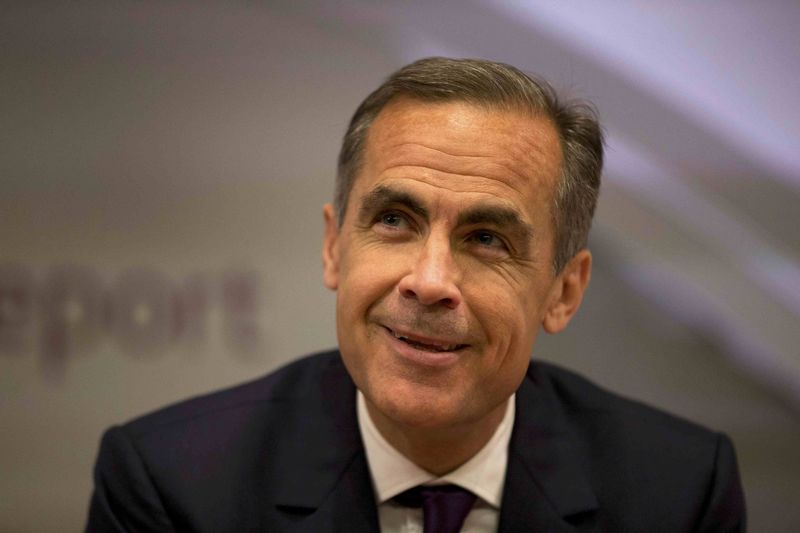Investing.com – Bank of England (BoE) governor Mark Carney said on Tuesday that the U.K.’s central bank does plan on following the purdah period in the run-up to the June 23 referendum on the Britain’s membership in the European Union (EU), but noted that Brexit risks could form a part of the Monetary Policy Committee (MPC) decision scheduled for June 16 and thus could form part of the minutes.
Testifying before the U.K.’s Treasury Select Committee Hearing on the May Inflation Report, Carney admitted that the June 16 decision could force the BoE to break the so-called purdah period that prohibits British civil servants from commenting on the upcoming referendum and will begin from Friday.
However, he noted that the BoE had already highlighted the risks associated with the uncertainty surrounding the possibility of a Brexit, as a vote to leave the EU is known, and that, in his personal view, he didn’t expect there to be any new details regarding the issue in the June 16 decision.
Carney also reiterated that, due to the amount of uncertainty in the economy at the moment, the BoE could be either over- or under-estimating its current effect.
Appearing with Carney, MPC member Martin Weale repeated the BoE’s outlook that a Brexit would most likely have a materially negative impact on growth and inflation in the short-term, which in turn would increase the risk of recession.
MPC member Gertjan Vleighe and BoE deputy governor Ben Broadband followed the same line of argument suggesting than an exit from the EU would slow growth, raise inflation and cause the exchange rate to fall.
Questioned directly if the BoE was unanimous on this outlook, Carney confirmed that all members agreed with the analysis.
With regard to the Financial Policy Committee (FPC), responsible for maintaining financial stability, Carney testified, “It is the consensus view of the FPC that Brexit represents the biggest domestic risk to financial stability.”
The BoE governor further added that there were also no dissenters on that idea within the FPC.
Under fire from pro-Brexit member of parliament (MP) Jacob Rees-Mogg, Carney once again insisted that the BoE was not expressing a political opinion on the referendum, but was simply following its remit by identifying and communicating perceived risks to the outlook.
He assured the committee that the BoE could ultimately achieve the inflation target regardless of whether the U.K. decides to remain in or leave the EU.
Meanwhile, the pound continued to show strength during the proceedings as a recent EU referendum poll showed 55% of those Britons with intention to vote favoring the remain camp, while 42% preferred a Brexit.
At 9:54AM GMT or 5:54AM ET, GBP/USD traded at 1.4575 compared to 1.4534 before the start of the hearings.
EUR/GBP moved to 0.7670 from the previous 0.7690.
GBP/JPY traded at 159.84 compared to the prior 159.22.
